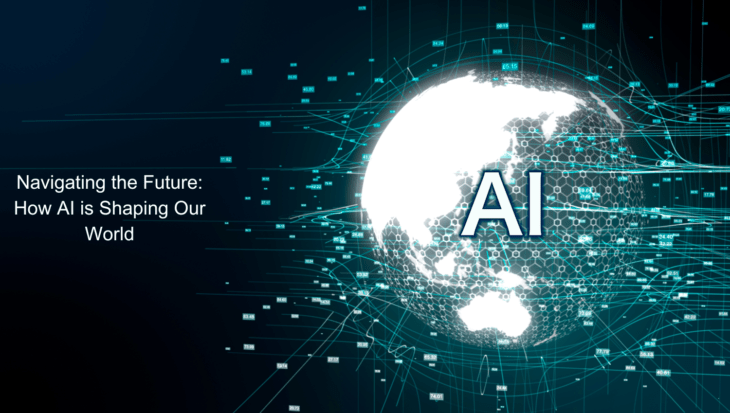In recent years, artificial intelligence (AI) has transitioned from a niche technological concept to a mainstream force driving transformative change across various sectors. Its influence is becoming increasingly pervasive, reshaping industries, enhancing capabilities, and raising important ethical and societal questions. As we navigate this evolving landscape, it’s essential to understand how AI is shaping our world and what lies ahead.
The AI Revolution: A Brief Overview
Artificial intelligence encompasses a broad range of technologies designed to perform tasks that typically require human intelligence. This includes machine learning, natural language processing, robotics, and computer vision. From autonomous vehicles to virtual assistants, AI applications are making waves across multiple domains.
Key Sectors Transformed by AI
- Healthcare
- Diagnosis and Treatment: AI algorithms are revolutionizing diagnostics by analyzing medical images with high accuracy. Tools like IBM Watson and Google’s DeepMind are assisting in identifying diseases such as cancer and diabetic retinopathy at early stages.
- Personalized Medicine: AI enables the development of personalized treatment plans based on individual genetic profiles, improving patient outcomes and minimizing side effects.
- Finance
- Algorithmic Trading: AI-driven algorithms analyze market trends and execute trades at lightning speeds, optimizing investment strategies and managing risk.
- Fraud Detection: Machine learning models are adept at identifying unusual patterns in transactions, enhancing fraud detection and prevention mechanisms.
- Education
- Adaptive Learning: AI-powered educational tools offer personalized learning experiences, adjusting content and pacing based on student performance and learning styles.
- Administrative Efficiency: Automation of administrative tasks such as grading and scheduling allows educators to focus more on teaching and student interaction.
- Transportation
- Autonomous Vehicles: Companies like Tesla and Waymo are advancing self-driving technology, promising safer and more efficient transportation options.
- Traffic Management: AI is optimizing traffic flow and reducing congestion through intelligent traffic light systems and predictive analytics.
- Retail
- Personalized Recommendations: AI algorithms analyze customer behavior and preferences to provide tailored product recommendations, enhancing the shopping experience.
- Inventory Management: Predictive analytics help retailers manage inventory more effectively, reducing waste and ensuring product availability.
Opportunities and Benefits
- Efficiency and Productivity: AI automates routine tasks, leading to increased efficiency and productivity in various industries. This allows human workers to focus on more complex and creative aspects of their jobs.
- Innovation and New Capabilities: AI drives innovation by enabling the development of new products and services. For example, AI-powered creative tools are revolutionizing art, music, and design.
- Improved Decision-Making: AI provides valuable insights through data analysis, helping businesses and organizations make informed decisions based on comprehensive data.
Challenges and Ethical Considerations
- Privacy Concerns: The collection and analysis of vast amounts of personal data by AI systems raise significant privacy issues. Ensuring data protection and transparency is crucial.
- Bias and Fairness: AI systems can inadvertently perpetuate biases present in the data they are trained on. Addressing algorithmic bias and ensuring fairness in AI applications is a critical challenge.
- Job Displacement: While AI creates new opportunities, it also poses the risk of job displacement as automation replaces certain roles. Reskilling and workforce adaptation strategies are essential to mitigate this impact.
- Security Risks: AI systems can be vulnerable to hacking and misuse. Implementing robust security measures and ethical guidelines is vital to prevent malicious activities.
The Road Ahead
As we look to the future, AI is set to play an increasingly central role in shaping our world. Continued advancements in technology will bring both exciting opportunities and complex challenges. Key areas to focus on include:
- Ethical AI Development: Ensuring that AI systems are developed and deployed ethically, with attention to fairness, transparency, and accountability.
- Human-AI Collaboration: Fostering collaboration between humans and AI to leverage the strengths of both and achieve optimal outcomes.
- Regulation and Governance: Developing regulatory frameworks that balance innovation with protection, addressing issues related to privacy, security, and ethical use.
Conclusion
Artificial intelligence is undeniably shaping our world in profound ways, from enhancing everyday experiences to driving industry innovations. As we navigate this transformative era, it is crucial to embrace the opportunities AI presents while addressing the challenges it poses. By fostering responsible development and thoughtful integration, we can harness the power of AI to build a better, more equitable future for all.
Stay informed and engaged with the latest developments in AI to understand how these advancements might impact your life and the world around you.













Leave a Reply